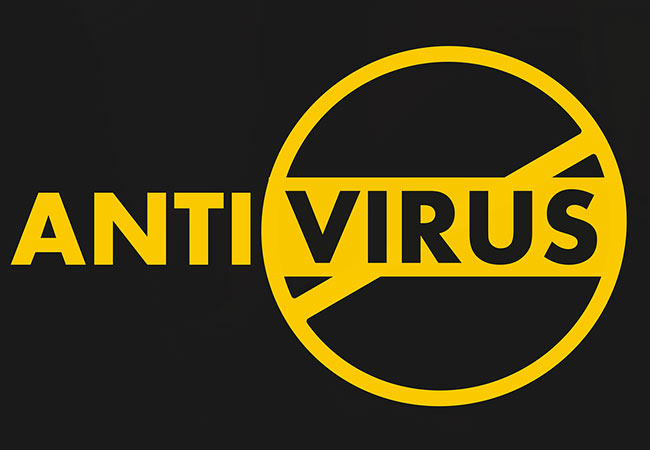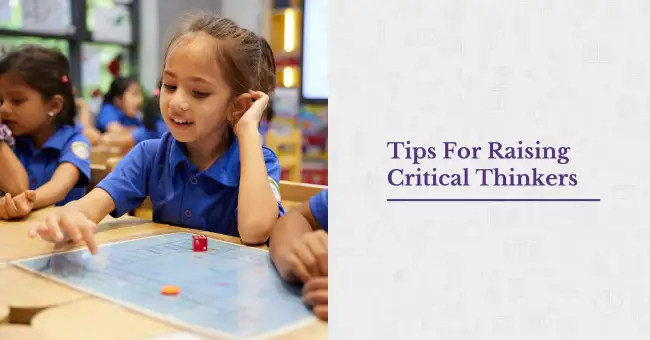
In a society plagued by social media and tangled in the web of the internet, how do you keep your children safe on the internet? As an educator, we often come across such questions from worried parents, guardians and adults who do not want to expose their kids to the grim reality of the web. It’s fair and it’s valid. While the internet boom did wonders for the youth and the population in general, there are countless other aspects of the net which pose an immediate threat to the safety and security of an individual. Especially if the individual in question is a child, with zero to 10% knowledge about the workings of the net.
Before we try to understand how to keep your children safe on the internet, let us address the elephant in the room. Do you think that keeping them away from the internet completely is the solution? NO. It would be naive of us to assume that our kids do not get access to the net from sources or places other than our homes. All this will do is increase curiosity among them, the kind which may often go side-ways.
The phenomenon of data breaching has become as common as cold. While there are tons of security software out there that can get the job done, certain safety measures can be taken by adults in the house to ensure a well-fortified first line of defence. Here are some tips and tricks that you can employ to keep your children safe on the internet.
1. Talk, Talk, Talk!!!
The first and foremost thing to do is have a conversation with your kids. Are we, as adults, having a conversation about safety and security on the internet? Are we deliberately trying to strike up a dialogue with regards to the sites they surf? If not, then START NOW!Statistics show that most parents DO NOT engage in a conversation with their kids about the dangers of the net. And when we say conversation, understand that it is a two way street. Ordering your child to not surf on the internet is just going to want to make them do it more. The “don’t do it” attitude will defeat the entire purpose of this article and along with it, will endanger the safety of your child. Sit them down and talk to them, ask them why they like to browse certain sites, educate them about spam ads and unwanted pop-ups which may create trouble later on.
2. Monitor Their Activity
There is a thin line between monitoring and spying. Make sure your child is aware that you will be following up on their online activity once they are done. Check browser history to see what sites they are visiting and other activities they might indulge in. While this may work for your younger kids, it may not be the best solution as they get older. Hence, communication. Very important.3. Do Not Shy Away From Parental Controls
In an online world as brazen as this, do not feel embarrassed from using parental controls for your young children. Keep locks, have filtered searches and you may also put restrictions on using certain sites. There are tons of sites out there that can help you with this. Google itself has something called as the Safe Search filter that helps to weed out violent and sexual content. While no one guarantees a 100% positive outcome with this approach, it can definitely help to curb certain unwanted materials from making their way into your online world.4. Don’t Talk To Strangers!
 The golden rule to be followed in your childhood is “don’t talk to strangers.” Translate that same rule online. When your child knows that he/ she is not supposed to talk to strangers in real life, they will do the same online as well. Talk to them about online predators and issues you may face if details about your life are leaked. Let them read articles or read to them, articles about online mishaps. Of course you can leave out the disturbing bits. This is just to give them an idea that things can and may go wrong with your personal information falls into the wrong hands.
The golden rule to be followed in your childhood is “don’t talk to strangers.” Translate that same rule online. When your child knows that he/ she is not supposed to talk to strangers in real life, they will do the same online as well. Talk to them about online predators and issues you may face if details about your life are leaked. Let them read articles or read to them, articles about online mishaps. Of course you can leave out the disturbing bits. This is just to give them an idea that things can and may go wrong with your personal information falls into the wrong hands.5. Limit: Usage As Well As Time Spent
Internet is an addiction. Anyone who says otherwise is being foolish. The fast moving animations and the plethora of information available make it a rather fascinating way to kill time. What starts as 15 minutes of innocent HW schedule can rapidly evolve into hours spent browsing through random articles and videos. So, set a limit of how much and for how long can your child have access to the internet. There are many parental setting that allow you to track the usage and time limit. Ensure they are always on and the child is aware about this.6. Have A Good Antivirus Installed
 It is very important to keep all your software’s updated and also have the latest version of the best anti-virus installed on your computers/ laptops or tablets. Kids, out of curiosity may access certain malicious links or pictures that may spell trouble! Downloading video games from untrusted websites or accessing random pop-ups can put your child in a dangerous situation. Malware concerns are real and having a good anti-virus with a strong real time run check, a solid firewall and scanning process, can make a lot of difference. Invest in a good one. Read up online, go through the reviews, talk to fellow parents and get a good anti-virus installed.
It is very important to keep all your software’s updated and also have the latest version of the best anti-virus installed on your computers/ laptops or tablets. Kids, out of curiosity may access certain malicious links or pictures that may spell trouble! Downloading video games from untrusted websites or accessing random pop-ups can put your child in a dangerous situation. Malware concerns are real and having a good anti-virus with a strong real time run check, a solid firewall and scanning process, can make a lot of difference. Invest in a good one. Read up online, go through the reviews, talk to fellow parents and get a good anti-virus installed.7. Be Patient. Listen To Them
Let your child educate you. The other day, I saw one of my 8 year old learner, sitting at a restaurant, deeply engrossed in a conversation with his mother. As I went over to say ‘Hi’, I asked what the topic of that interesting conversation was, she replied that he was telling her all about Marylyn Monroe. Yep, an 8 year old, talking about of the biggest sex icons of her time, with utmost ease. Why? Because his parent listened. She heard him, corrected him, asked him questions and tried to understand his views. Why is this important? Well, because, it makes the child realize that he is HEARD. Similarly, in the future, if an unwanted situation does arise, hear your child out. Do not go ballistic on them. Be calm and listen to them. Understand the situation at hand and try to find a solution to it.8. Keep An Eye
Watch out for any odd behaviour by your child. Do they look disturbed, have they started avoiding conversations, or any other warning signs that you may notice. Your kid may be in trouble, but he/ she may not be comfortable sharing it with you for the fear of being yelled at or simply because they believe they can handle it. So, keep an eye out for any alarms. Online predators also have a tendency to reach out at times. So keep a close eye on any special things that your child may be receiving.While these are a few tips that you can definitely use, what is also important is that you, as a parent, need to educate yourself about the dangers of the internet. Only then can you protect your child from it. Conversation is the key here. The more you talk to your child about it, the easier this process will be. Understand their skills and teach them, if need be; as this will make the monitoring process a whole lot easier for you.
Written By- Shraddha Gharge - Grade I Year Leader JBCN International School, Borivali





